Majority of Americans Think a Nuclear Conflict with Russia is Likely

These findings are the result of a poll of 600 Americans concerning the war in Ukraine. Campaign Insights used its Realtime Polling product to record timely and accurate opinions on the war and potential U.S. responses.
Highlights
- Majority of respondents support taking military action even if it risks nuclear conflict with Russia.
- Majority of respondents believe the U.S. should institute a no-fly zone over Ukraine and maintain strict economic sanctions on Russia.
- Generally, most respondents feel that the U.S. is providing enough support to Ukraine and approve of President Biden’s response—although Democrats are more likely to say that more support can be given.
The Process
What We Asked
- Do you feel the US is doing enough to support Ukraine?
- Do you approve of President Biden’s response to Russia’s invasion of Ukraine?
- Do you think the US should institute a no-fly zone over Ukraine?
- How do you feel about keeping strict economic sanctions on Russia?
- How likely do you think a nuclear conflict with Russia is?
- Do you support the US taking military action even if it risks nuclear conflict with Russia?
- Do you support admitting Ukrainian refugees into the US?
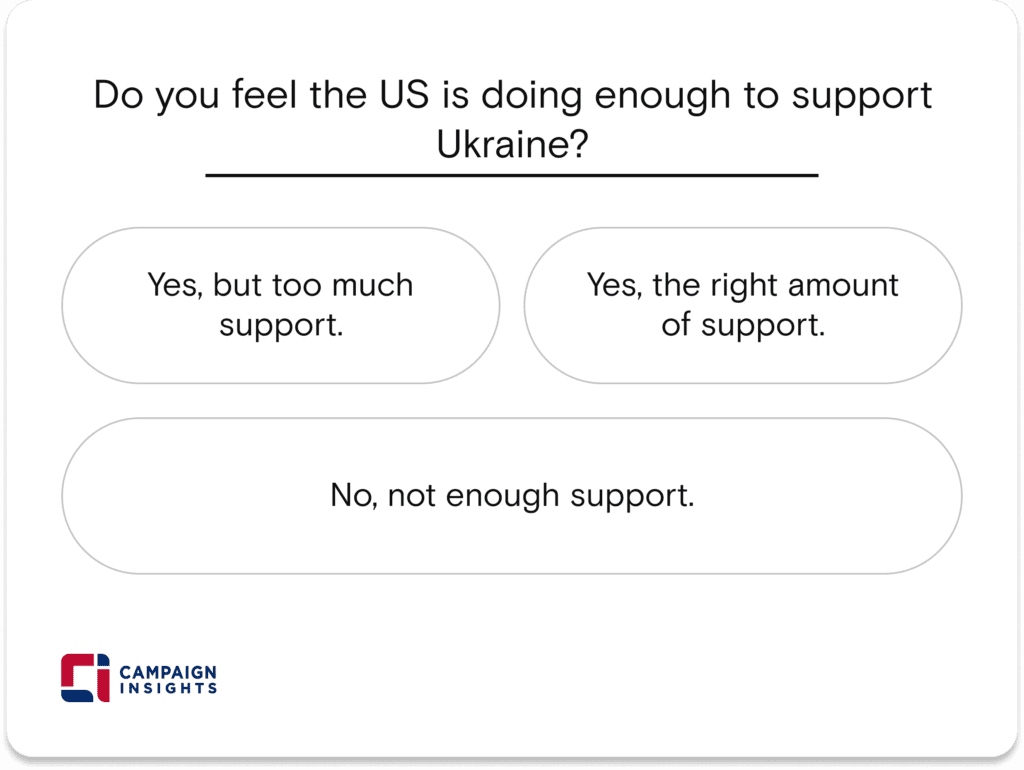
Results
When it comes to the likelihood of nuclear warfare, the majority of respondents think nuclear warfare is very or somewhat likely. Additionally, the majority of respondents also support taking military action even if it risks nuclear warfare with Russia (Figure 2A, 2B). Breaking those respondents down by gender, the majority of men were supportive of taking military action while women were more likely to be neutral (Figure 2C). The majority of those who identified as Solid Republican and Solid Democrat said they support taking military action if it risks nuclear conflict with Russia while independents were more likely to be neutral (Figure 2D)
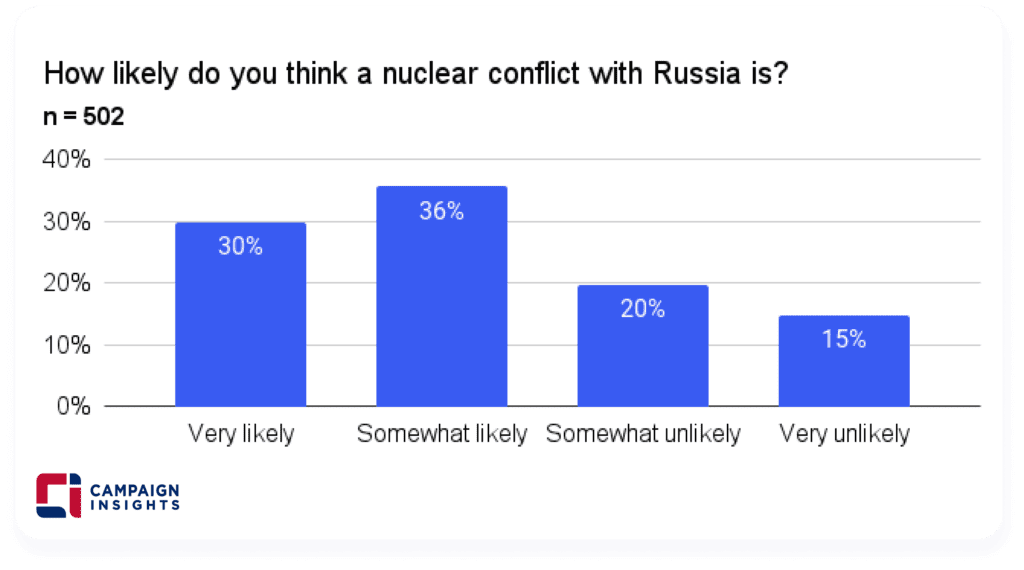
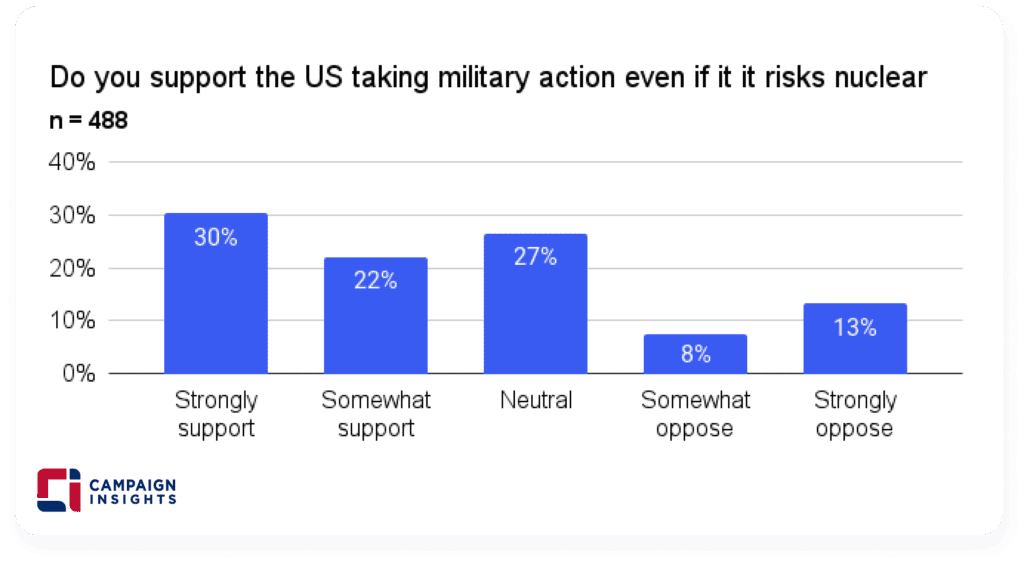
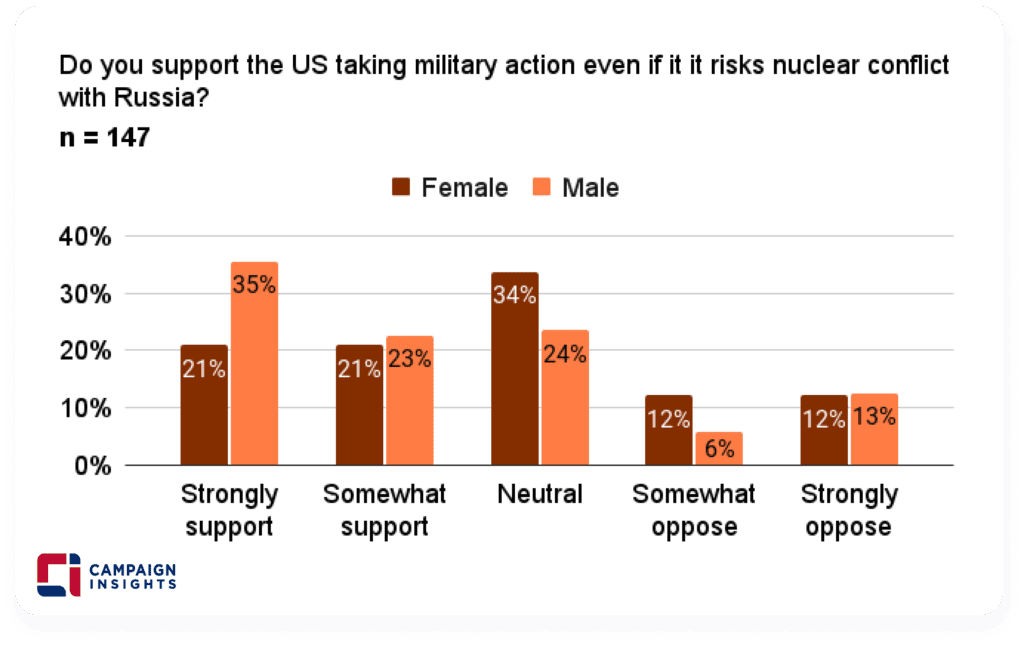
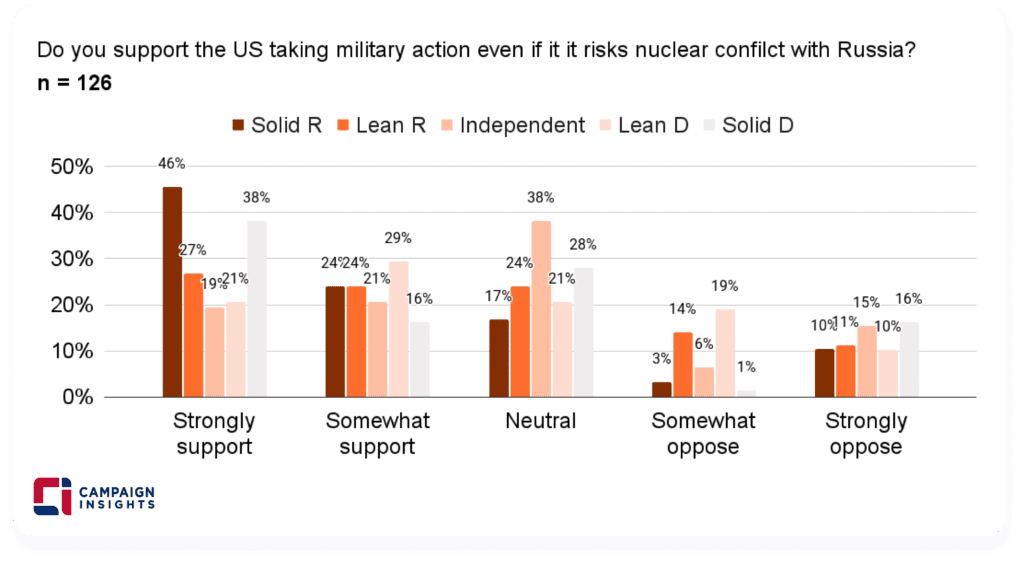
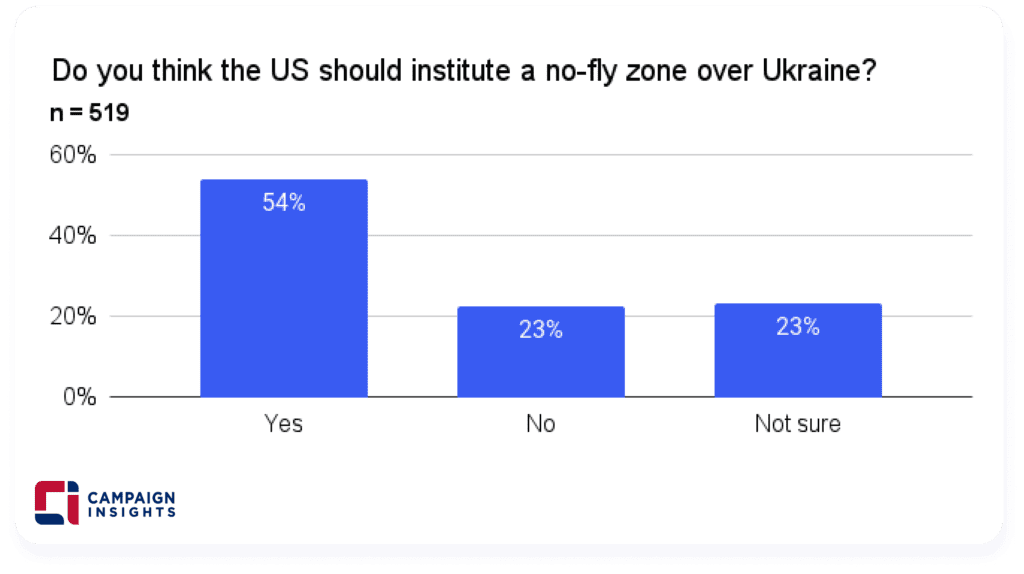
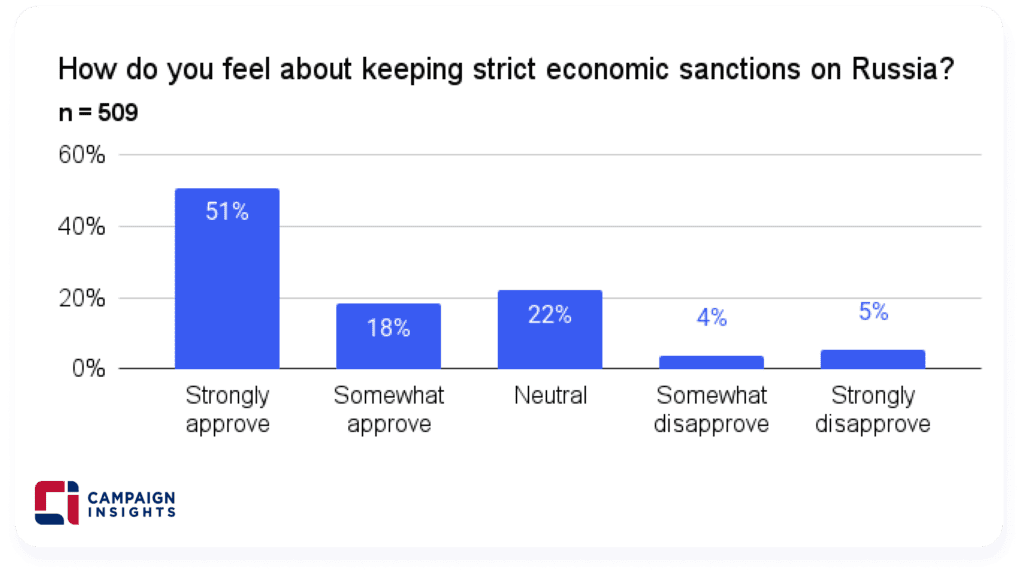
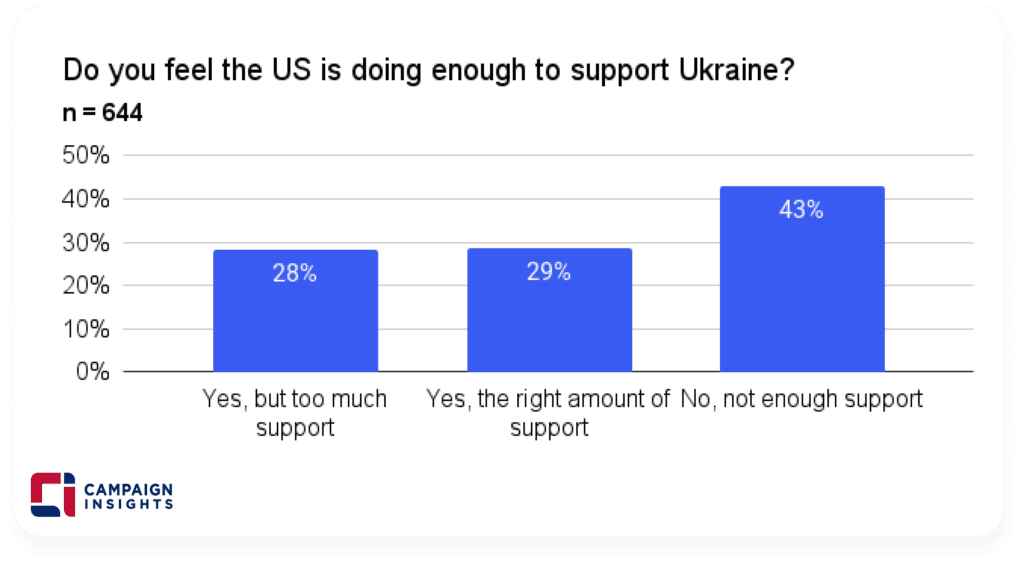
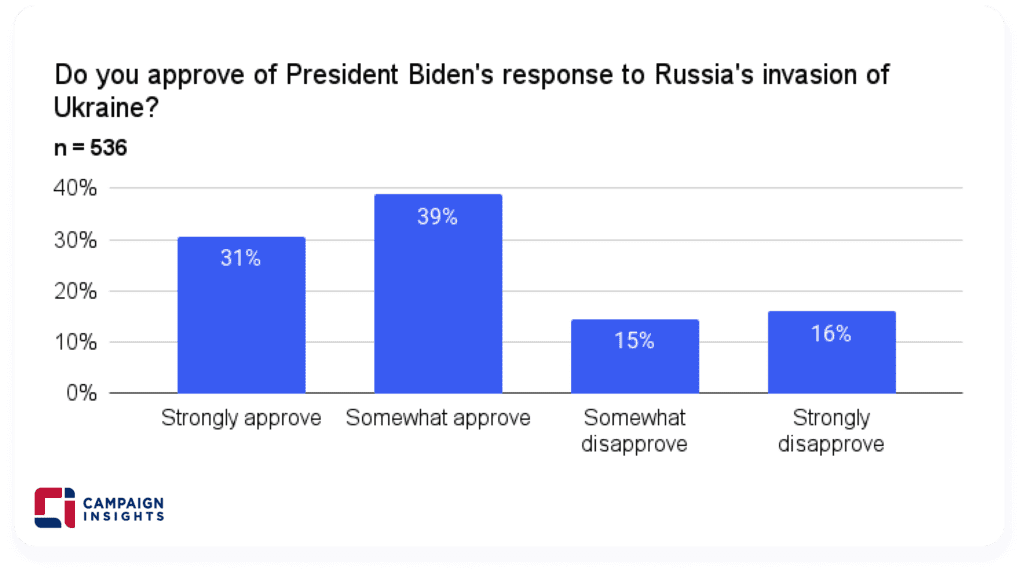
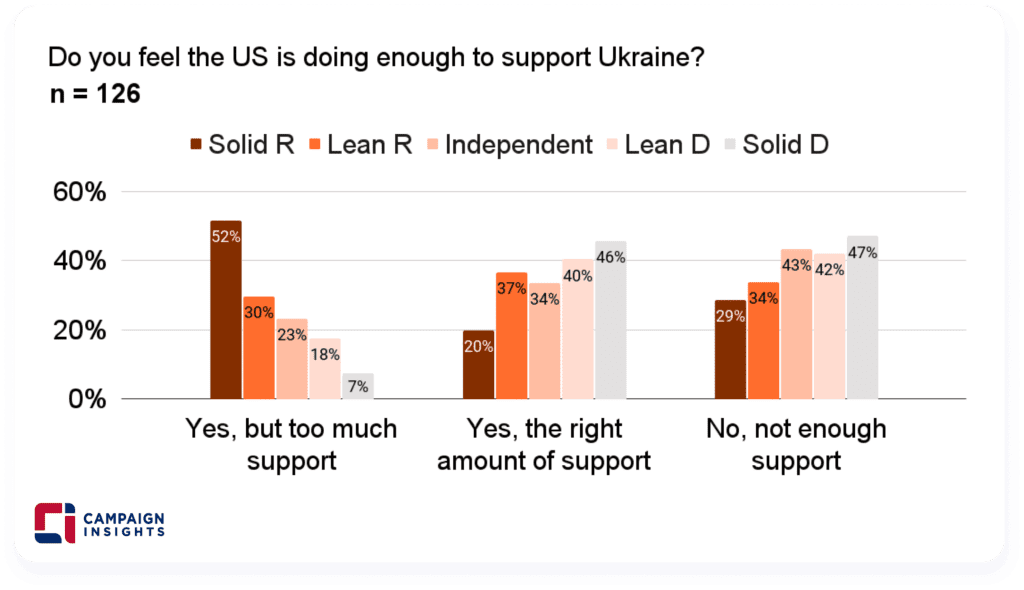
Discussion
The most concerning point from the data above is that the majority of all respondents feel that nuclear conflict with Russia is very or somewhat likely. In our sample, the majority of respondents also support the U.S. implementing a no-fly zone over Ukraine — something that has been a contentious point of discussion as it has major implications — despite pleas from Ukraine’s President Zelenskyy for NATO to implement one.
Campaign Insights’ Realtime Polling surveys differ from traditional online surveys in that the questions are shown to the user on web pages in place of an ad. Unlike Google Surveys, which block access to content until the questions are answered, Realtime Polling surveys are optional, thus ensuring that participants are responding voluntarily.
